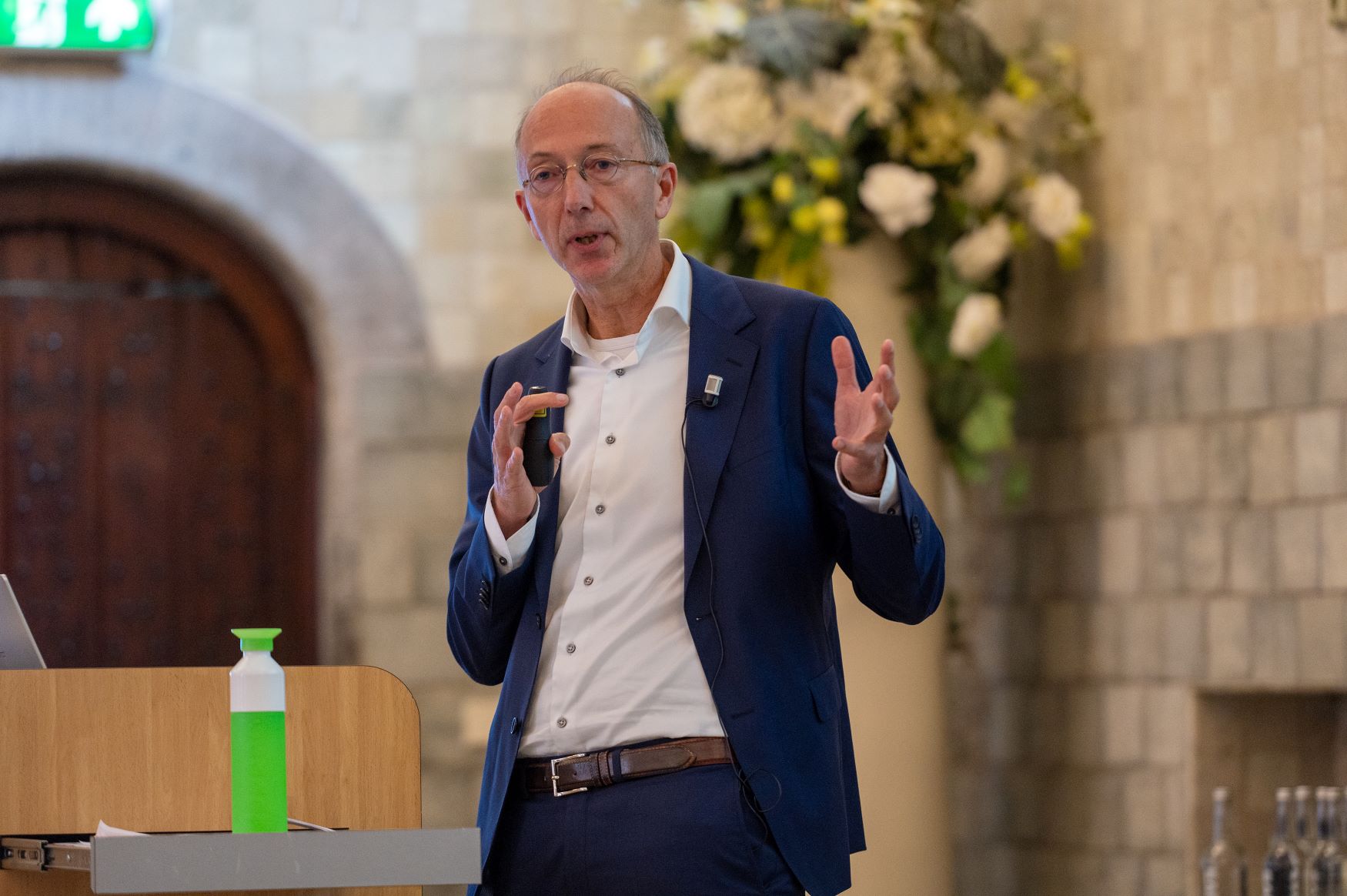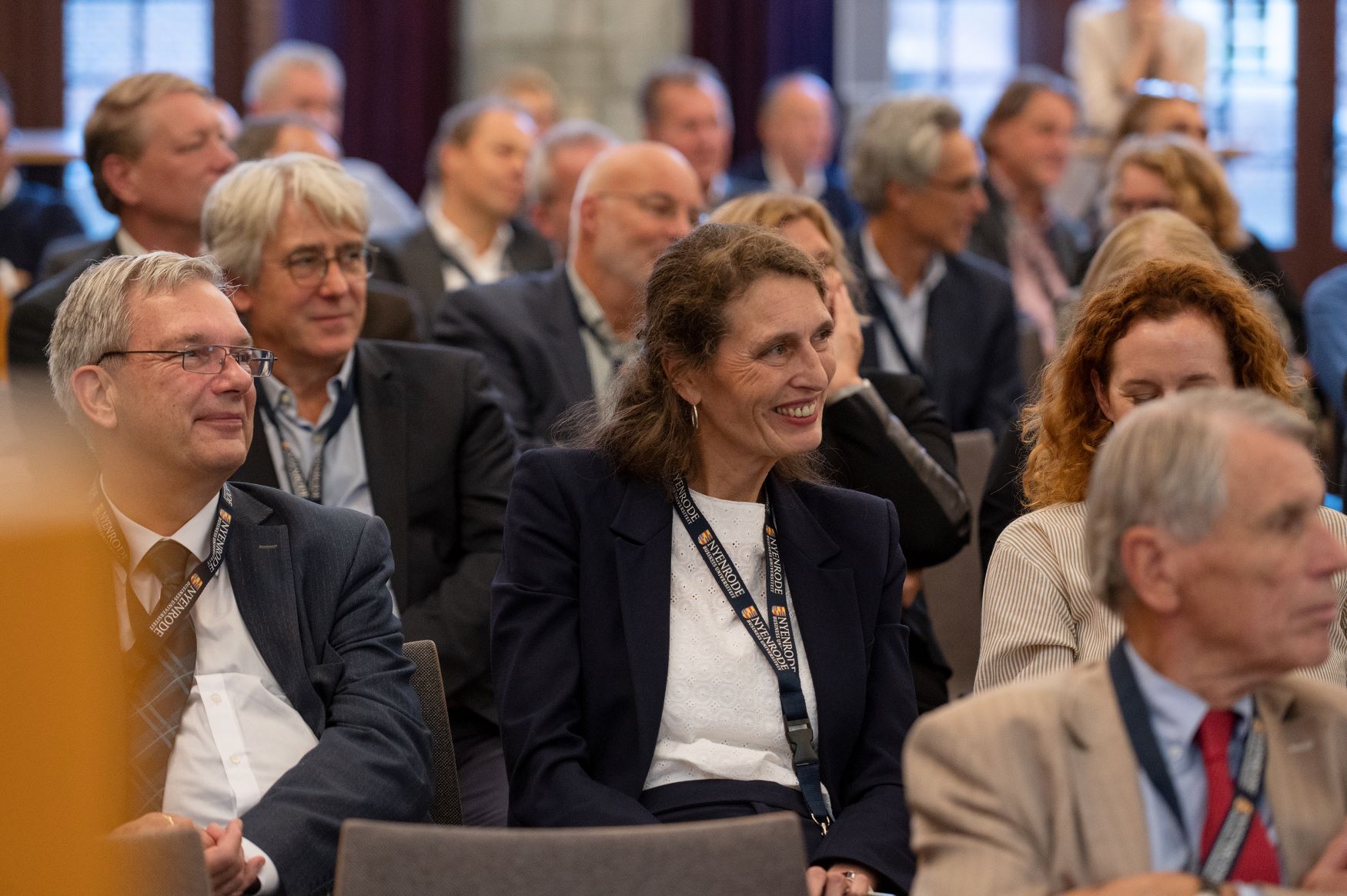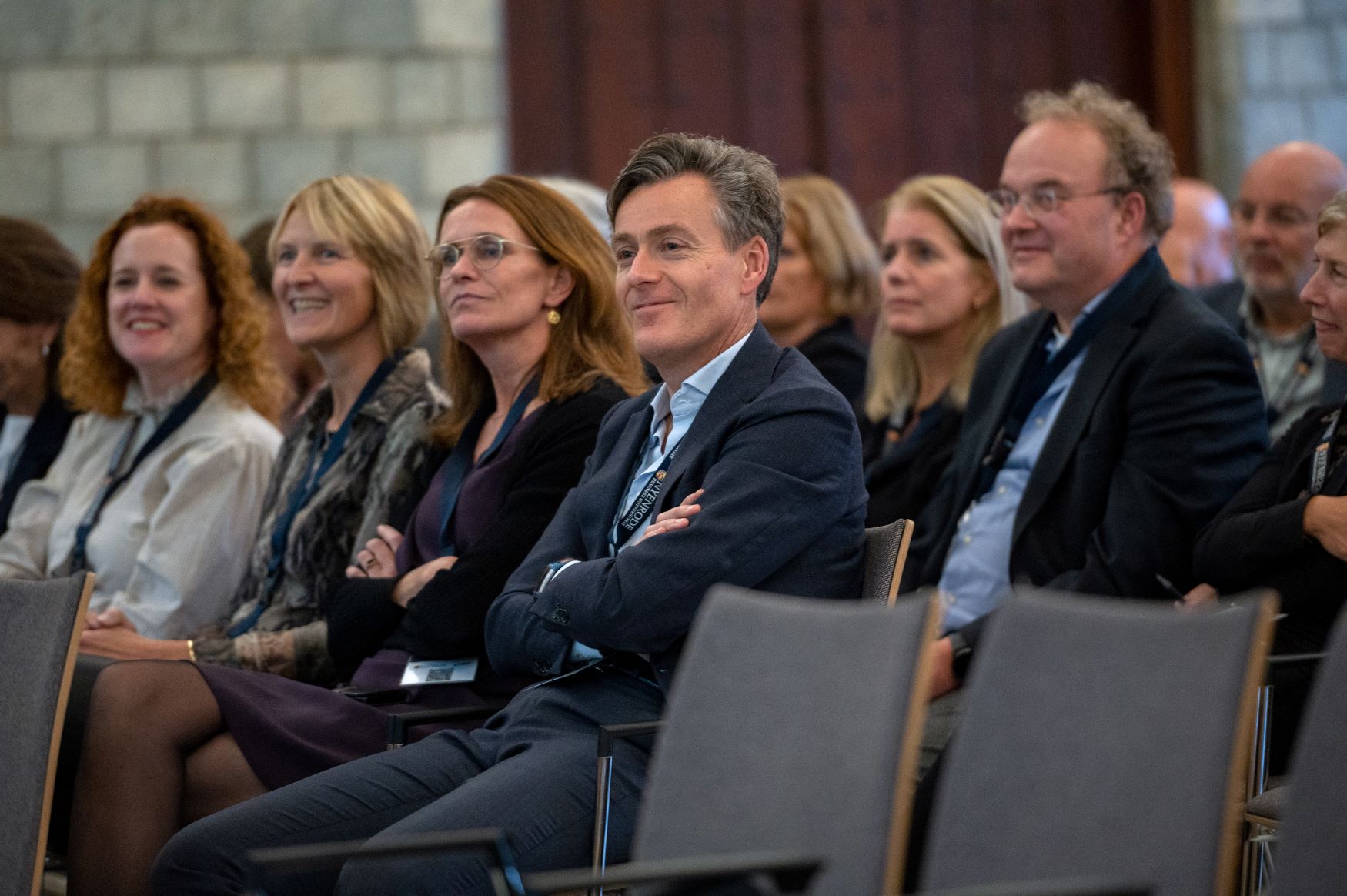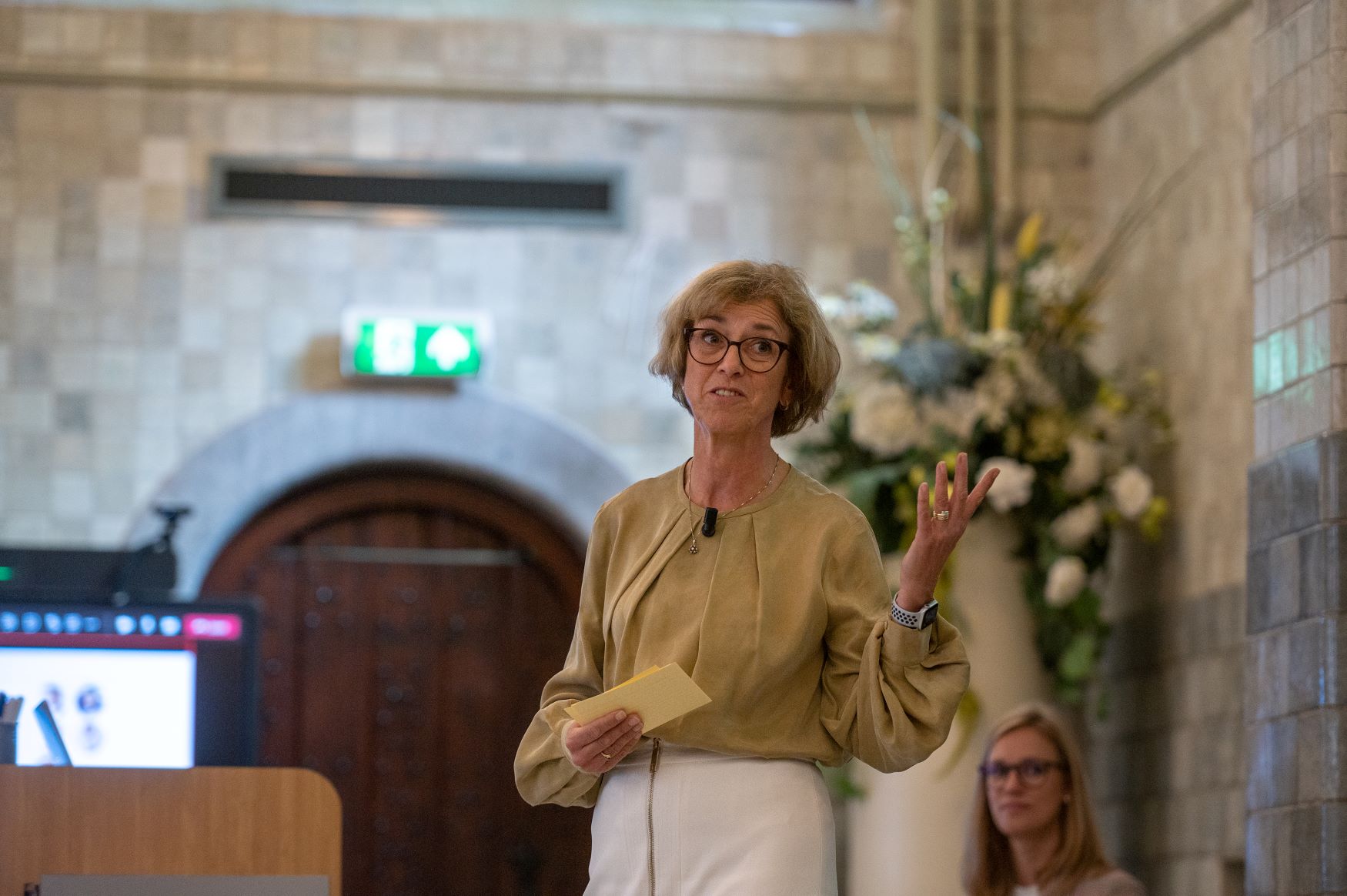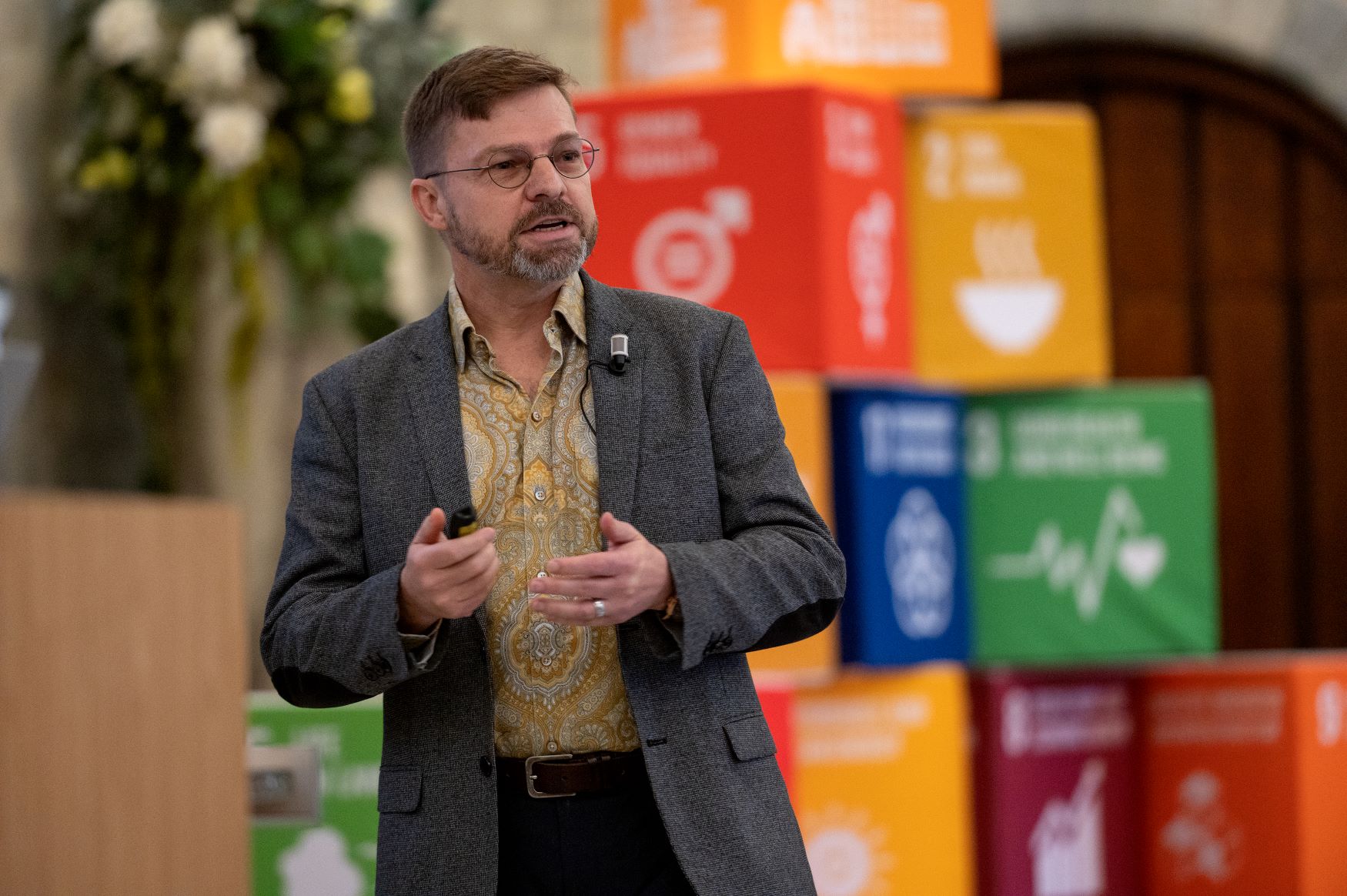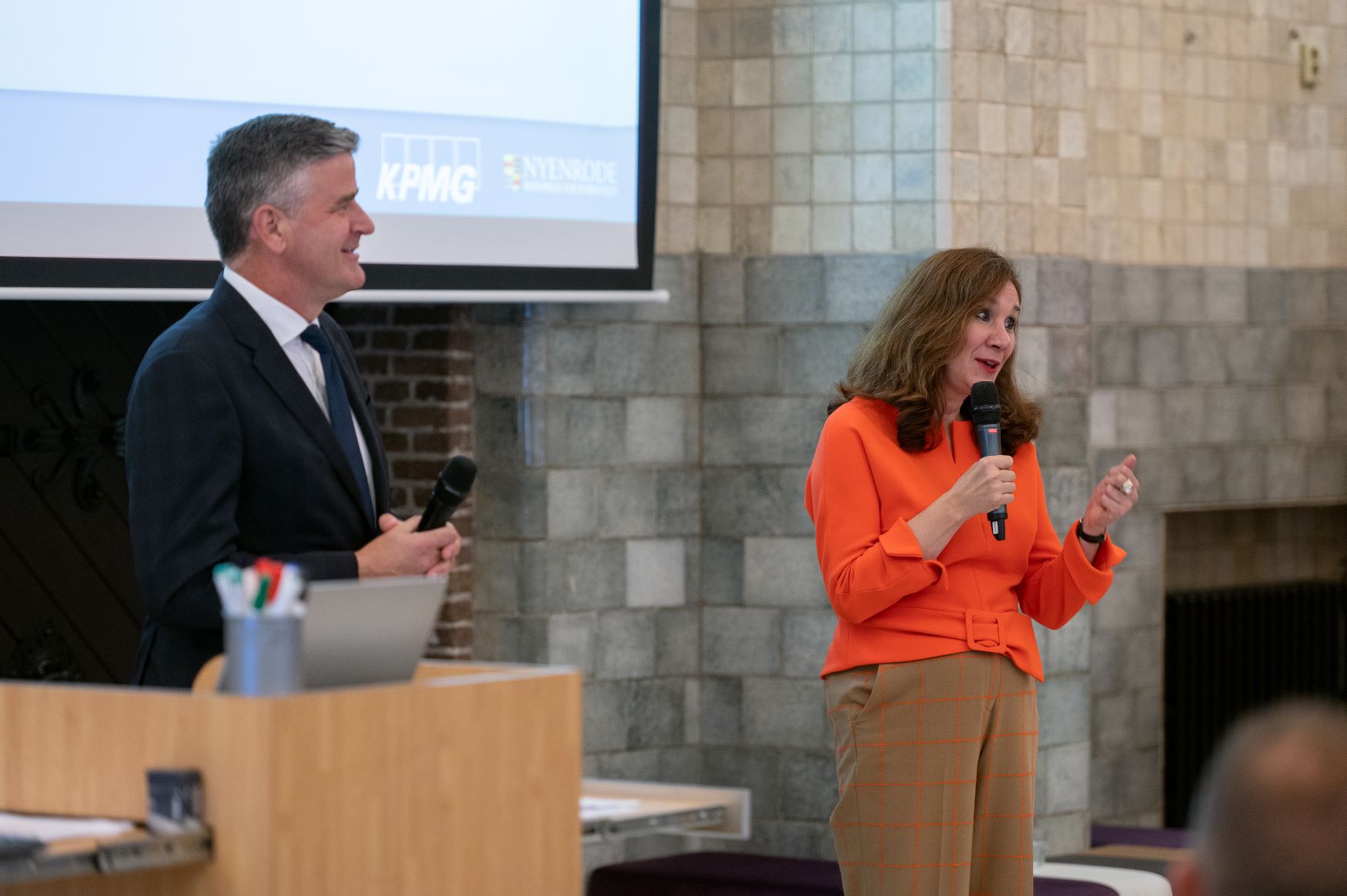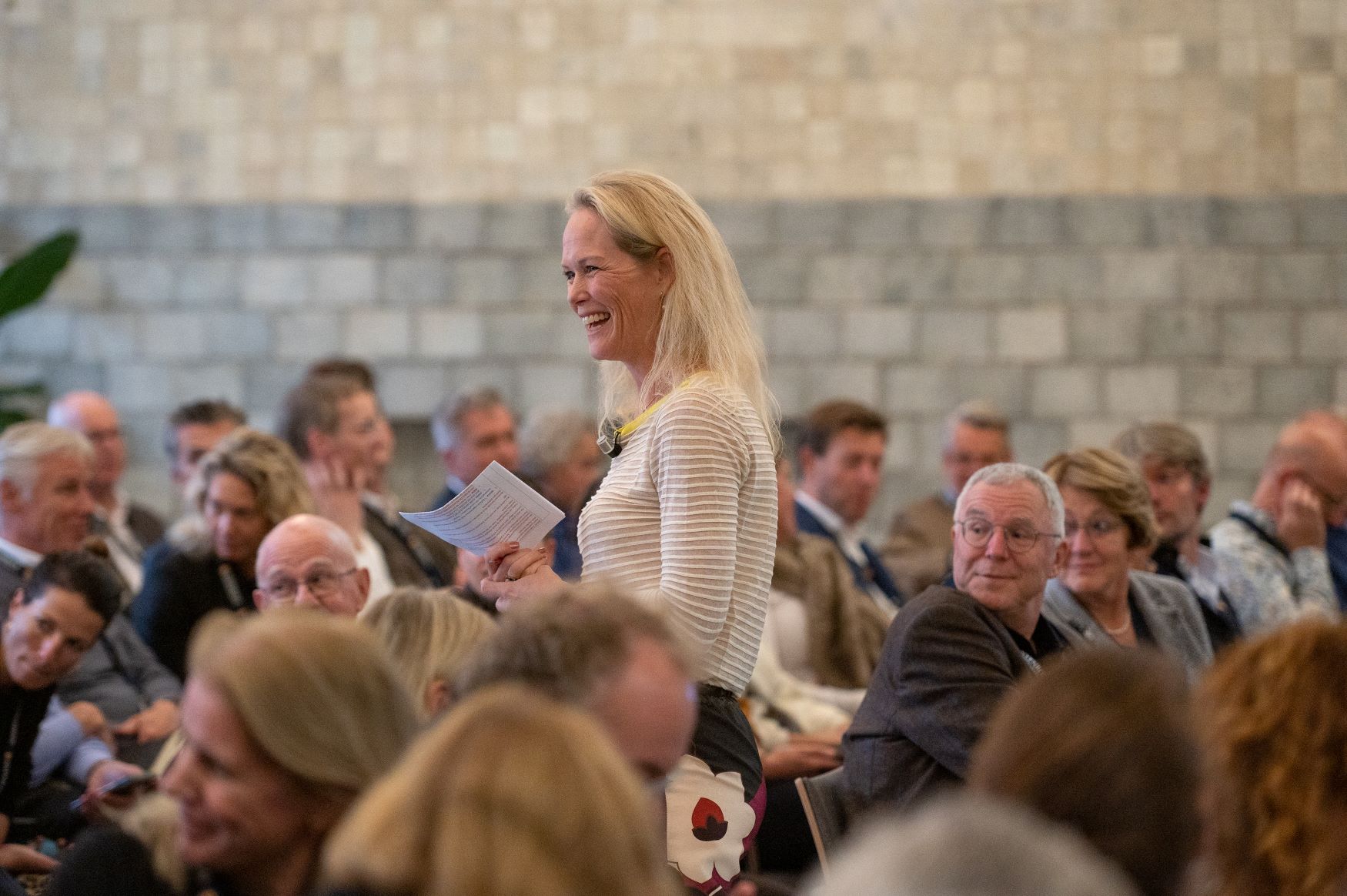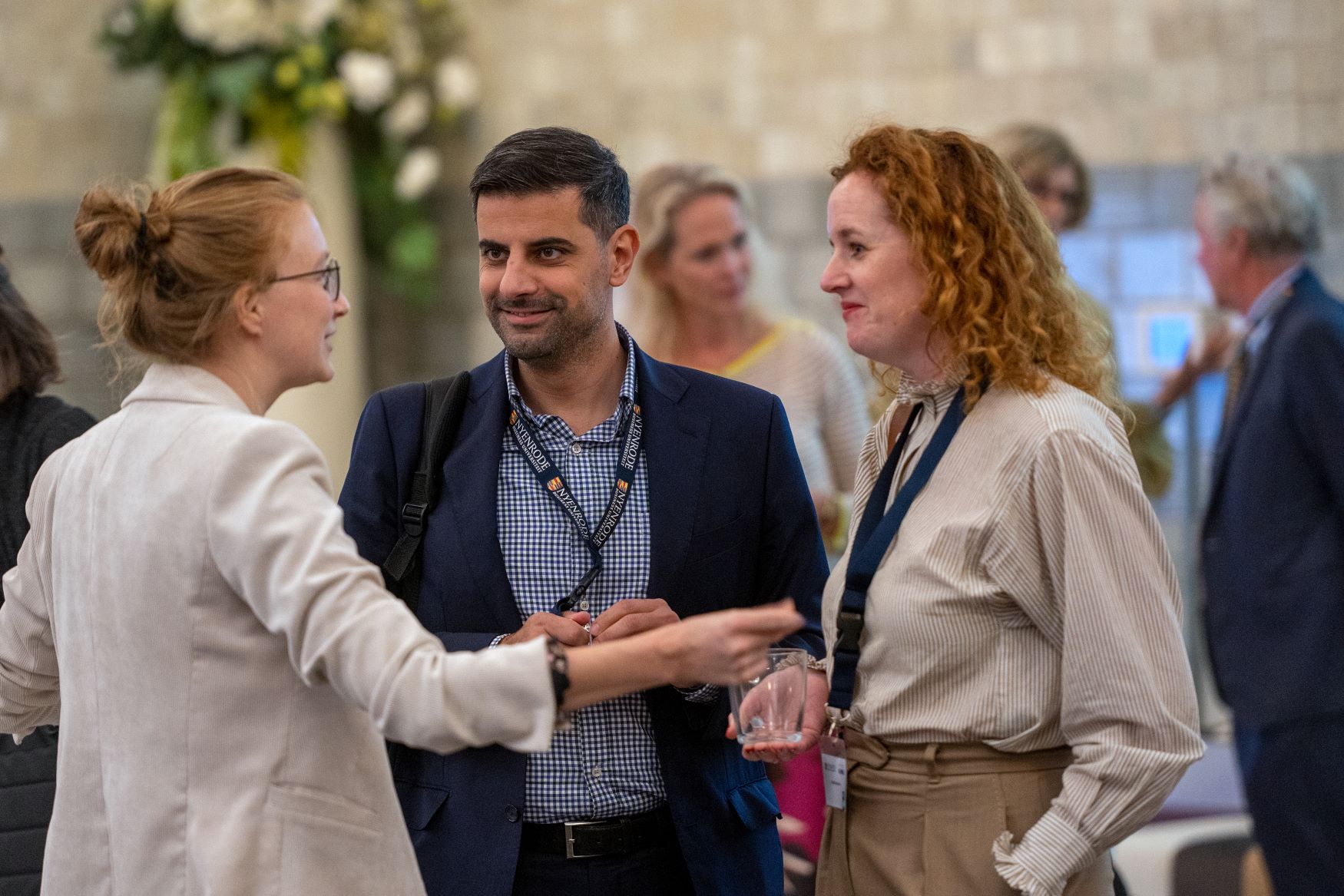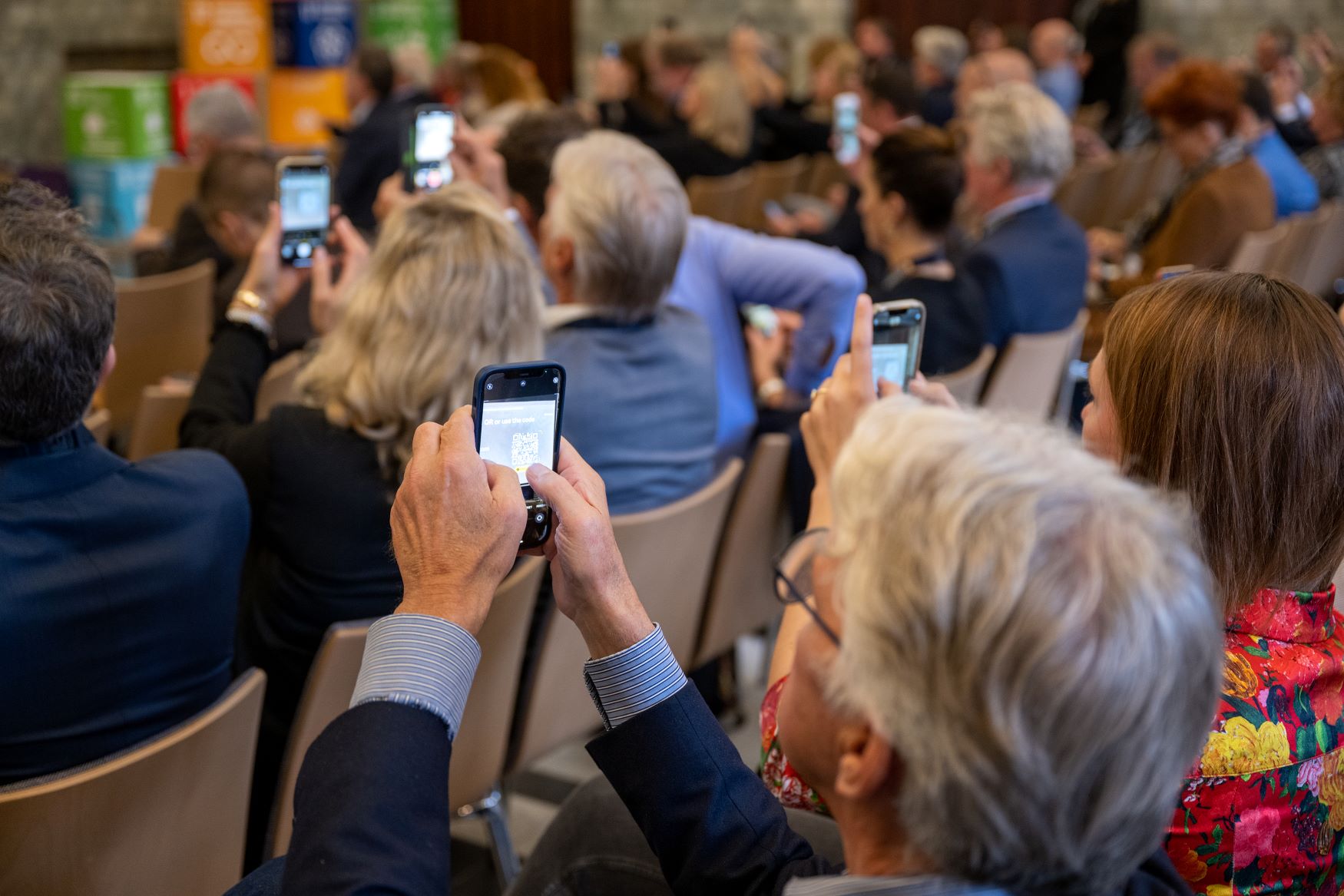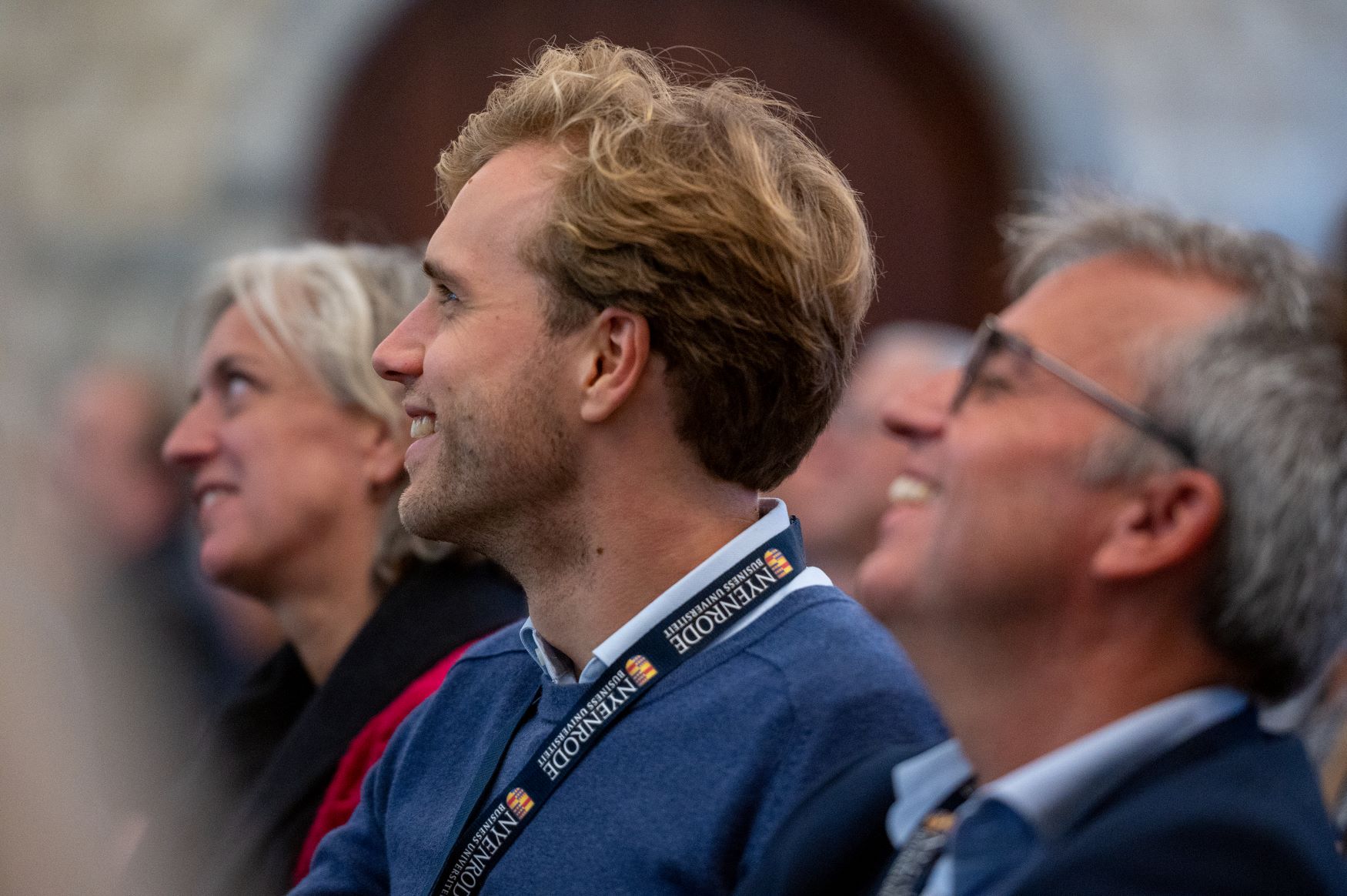Sustainable transformation of organisations first of all requires transformation of leaders themselves, as emerged during the first meeting of the recently established ESG Innovation Institute, a joint initiative of Nyenrode Business University and KPMG to assist directors, supervisory directors and professionals in the field of sustainability. On the moral compass, courage, dealing smartly with dilemmas and the six keys to a better world: 'Nurture a burning ambition to bring businesses and society back to full fruition’.
'A species can only thrive if everything around it also thrives.' A quote from biologist and television producer David Attenborough. Translated to the corporate biotope: 'Companies cannot be successful in a failing society’. And that is a statement from former Unilever chief Paul Polman. Behold the challenge that contemporary leaders are faced with: making the world a better place in order to perform better as a company too. How can you initiate the transformation required for this and give concrete substance to making your operations more sustainable?
That question was central during the symposium Act to Impact - Leading ESG Business Transformation: the kick-off meeting of the ESG Innovation Institute, a collaboration between Nyenrode Business University and consultancy and accountancy organisation KPMG. The ESG Innovation Institute brings together Nyenrode's educational expertise and academic research with KPMG's knowledge and experience in ESG (Environment, Social and Governance). The institute aims to support companies on their path to sustainability by building a community for exchanging learning experiences and sharing best practices.
Knowledge Gap
This is much needed, co-founders Jessica Peters (Director of Customized Executive Education Nyenrode) and Esther van Zeggeren (Head of Brand Management, Reputation and Marketing at KPMG) stress. Recent ESG Innovation Institute research among 260 directors reveals that they often do not know how to lead the sustainability transformation and integrate ESG into their business operations. 'There is a knowledge gap in the field of ESG and a gap between thinking and doing, which we want to help bridge with our institute,' Van Zeggeren said. Peters: 'We want to help leaders learn with and from each other how to embed ESG at the heart of strategy and organisation, rather than just in external accountability.'
Past the Tipping Point
'The urgency of making business sustainable demands that leaders go on a journey together,' said Koen Becking, president and rector magnificus of Nyenrode Business University. He is ambassador of the ESG Innovation Institute, together with Stephanie Hottenhuis, CEO and chairman of the board of KPMG Netherlands. 'Since the pandemic, we have passed the tipping point for sustainability,' said Hottenhuis. 'We realise we have to act now. Our sons and daughters are asking for it, Generation Z even in a compelling way.' Moreover, a tidal wave of regulations from the European Union is coming our way, such as the CSRD (the Corporate Sustainable Reporting Directive) and the EU Taxonomy for Sustainable Activities. ESG also changes the valuation of companies, Hottenhuis argues. 'This is no longer primarily driven by financial performance, but to an increasing extent by intangibles: how is the company dealing with environment and human rights, is there equity of opportunity for every employee, is the company well managed and is it transparent about dilemmas?'
Curiosity and Vulnerability
So companies need to embark on a sustainability transformation. Hottenhuis: 'That starts with purpose and strategy: what do we believe in, what is our impact, how do we integrate ESG into our processes? We want to help leaders build a bridge between ambition and actually getting moving.' Becking also stresses its importance: 'ESG must move from intention to action.' This requires leaders to be eager to learn and vulnerable. 'Sustainability has been called the new digitalisation, but by comparison we are still in the floppy-disk phase,' said Hottenhuis. Innovation is needed and leaders need each other for that. 'So don't be defensive. Dare to say you don't know how to become sustainable, we can help each other with best practices.'
Playing along or offside
What are the experiences of the participants with respect to the ESG transformation in their companies? Do they believe companies will get out of business if sustainability is not progressing fast enough? Yes, says the vast majority via digital poll Mentimeter. A participant: 'More and more clients are making demands on our ESG performance. If they are not good enough, they will choose the competitor. So if we want to survive, this is the game we have to play.' One of the few no-voters in the room pointed out that the speed of transformation must be balanced with financial results. 'During the current crisis, we are therefore steering less towards ESG in the short term, while continuing to do so for the long term.'
Commitment and Courage
Above all, leaders need commitment and courage to achieve ESG transformation in their organisations. Courage to transcend classical profit thinking and commitment to the necessary cultural change, as pointed out by a participant: 'My main challenge is integrating ESG into the culture of the organisation and choosing clients who are willing to take on sustainability together.'
Are the leaders in the room taking bold and courageous steps in the area of ESG? The number of yes-voters appears to be only narrowly in the majority. A yes-voter: 'At a large family company where I was chief executive officer, we initiated an ESG transformation years ago to reduce water use, toxic materials and CO2 emissions in our factories worldwide. That was a brave step, especially back then.' Another participant is working globally on the Sustainable Development Goals (SDGs). 'For that, you need not only courage but also partners. Alone you go faster, but when you work together there are more opportunities for scaling.' One of the no-voters says: 'As a member of the management team of a subsidiary, unfortunately, I can only take smaller steps. The bold steps have to be taken by the head office.'
Being Good and Doing Good
Courage and commitment are also two characteristics in the profile of ESG leaders, as outlined by Muel Kaptein, partner at KPMG and professor of business ethics and integrity management at Erasmus University Rotterdam. Sustainable business transformation starts from the heart, according to Kaptein: with the person and ethos of the leader. Kaptein draws on the classical virtue ethics of the Greek philosophers Socrates, Aristotle and Plato: 'You can only do good things as a citizen, head of state, CEO or ESG director if you are also good as a person. So it is not just about what leaders do, but who they are. If we know the profile of successful ESG leaders, we can judge ourselves and others accordingly.'
The 7Cs of ESG leaders
Kaptein distilled the 7 Cs from a literature review and peer survey on the characteristics required of ESG leaders: Compass, Curiosity, Commitment, Creativity, Courage, Cooperative and Consistency. On the first C, having a moral compass, Kaptein asked the audience a question of conscience: 'In your career, are you driven by delivering financial performance for the company, working for the well-being of yourself and your family, or by creating social value?' Successful ESG leaders have a well-tuned moral compass: a clear purpose and guiding values to transform the company, fuelled by passion and compassion. 'You cannot simply refer to what society asks from you, it is about your own vision as a leader on issues like fair profit, responsibility in the chain, or the transgender discussion.' Is there already a leader who possesses all seven characteristics? That is not necessary, Kaptein reassures the audience. Those who are not yet ESG leaders can become one. So leaders must first transform themselves.
Competing Sustainably à la Porter
How can such an ESG leader then transform the organisation? Anke van Hal, professor of Sustainable Construction at Nyenrode, provides a practical tool: management guru Michael Porter's famous matrix for competitive strategy, but translated to sustainability. First, the cost reduction axis: in the short term, companies can save on non-renewable energy and environmental costs with more sustainable operations and chain cooperation. On the long term, savings can be made by managing environmental risks and anticipating regulations such as the CSRD. 'For example, the construction industry itself developed a green standard to get ahead of government regulations,' Van Hal pointed out.
Then the quality axis: in the short term, companies can meet the needs of the target group and make the existing supply more sustainable. 'A company like Ikea now advertises the sustainability of their products, after first spending 20 years working on the feasibility of those claims.' In the long(er) term, companies can reinvent themselves and develop new products and services. 'This is how flooring manufacturer Interface transformed itself into a fully CO2 neutral manufacturer in 25 years.' Sustainable competitive advantage à la Porter, in other words. But agility is also required, Van Hal stresses.
What's in it for me?
As a company, how do you deal with the inevitable conflicts of interest and dilemmas that arise with sustainability? Van Hal presents the 'strategy of shared interests'. Map stakeholders' interests, help them solve their problems or realise their dreams from the perspective of sustainability, and find appropriate funding.
Breakdown or Breakthrough?
Why do companies need to become sustainable in the first place? No one in the room will wonder why anymore, after the presentation by Wayne Visser, professor of Integrated Value at Antwerp Management School and globally recognised 'pracademic' in the field of sustainability. In rapid succession, Visser presents ten disturbing facts: from climate damage and declining biodiversity to LGBTQ+ discrimination and the gender pay gap, from migration flows to corruption and cybercrime. Major shocks can lead to a breakdown or a breakthrough instead, that can help the world emerge stronger from the crisis. Visser: 'I believe in the latter: we must face reality, but at the same time never give up hope.'
Six Transitions to a New Economy
In his book Thriving: The Breakthrough Movement to Regenerate Nature, Society, and the Economy , Visser describes six transitions to a new economy along the ESG axis: from degradation of natural capital to ecoservices for investing in natural capital, from resource depletion to circularity, from division and inequality to access for all, from a digital divide to global deployment of digitalisation in social and environmental areas, from disease to wellbeing, and from disruption to risk resilience to better cope with crises. Visser gives wonderful examples for each transition. We will pick one: Barefoot College, which operates in over 2,000 villages in 93 countries and trains illiterate elderly women to become solar engineers, so they can install and maintain solar power systems in their own villages. 'Besides the energy transition, this is how you break through several barriers at the same time: gender, age and urbanisation.'
Take the ESG test
Achieving the six transitions requires the six keys for ESG: complexity, circularity, creativity, coherence, convergence and continuity. Visser presents each key as a test for the participants in the room: does it fit their ESG policy? The first key: complexity. 'Look at an ant colony: the more connections, the stronger the system.' The test question: do we as a company connect parties for more clout on ESG? The second key: circularity. The test question: does our strategy bring us closer to the circular economy? 'Or do you still linearly assume take make waste?' The third key: creativity (through diversity). The test question: does our strategy contribute to a broadly diverse and inclusive organisation? The fourth key: coherence. 'What goes for swarms of birds also goes for humans: if 5 to 25 percent of a group moves in a certain direction, the rest of the group will naturally follow.' The test question: does our purpose create cohesion and movement in the organisation? The fifth key: convergence. The rollout of renewable energy sources and battery storage has a mutually reinforcing effect. The test question: what are we doing as an organisation to strengthen ESG developments?
Trapped in Shareholder Capitalism
The sixth and final key is continuity, which could be called a kind of runner that fits every ESG door. Visser: 'According to McKinsey research, a long-term focus is better for the bottom line and yet we are still trapped in shareholder capitalism.' The ultimate test question: do we have a long-term strategy to thrive in the future, but also the adaptability to survive short-term shocks? Visser concludes with an appeal. The current steering on ESG often fails due to lack of clarity, is too compliance-oriented and does not inspire people. 'Turn that into a burning ambition to bring businesses and society together back to full bloom.'
All Aboard
The key characteristics of ESG leaders, competing sustainably à la Michael Porter, the strategy of shared interests for creating stakeholder support, plus the keys to unlocking social and corporate value: participants got a nice taste of the vision development and practical support the ESG Innovation Institute aims to offer leaders now and in the future in the sustainable transformation of their organisations. Let’s start the journey!
Photos
Related programs
-
Executive ESG Program
Start date: To be determinedLanguage:- English
Location:- Breukelen
The latest ESG knowledge and insights to transform your organization and be able to increase your positive impact on people, planet and society.
View program


